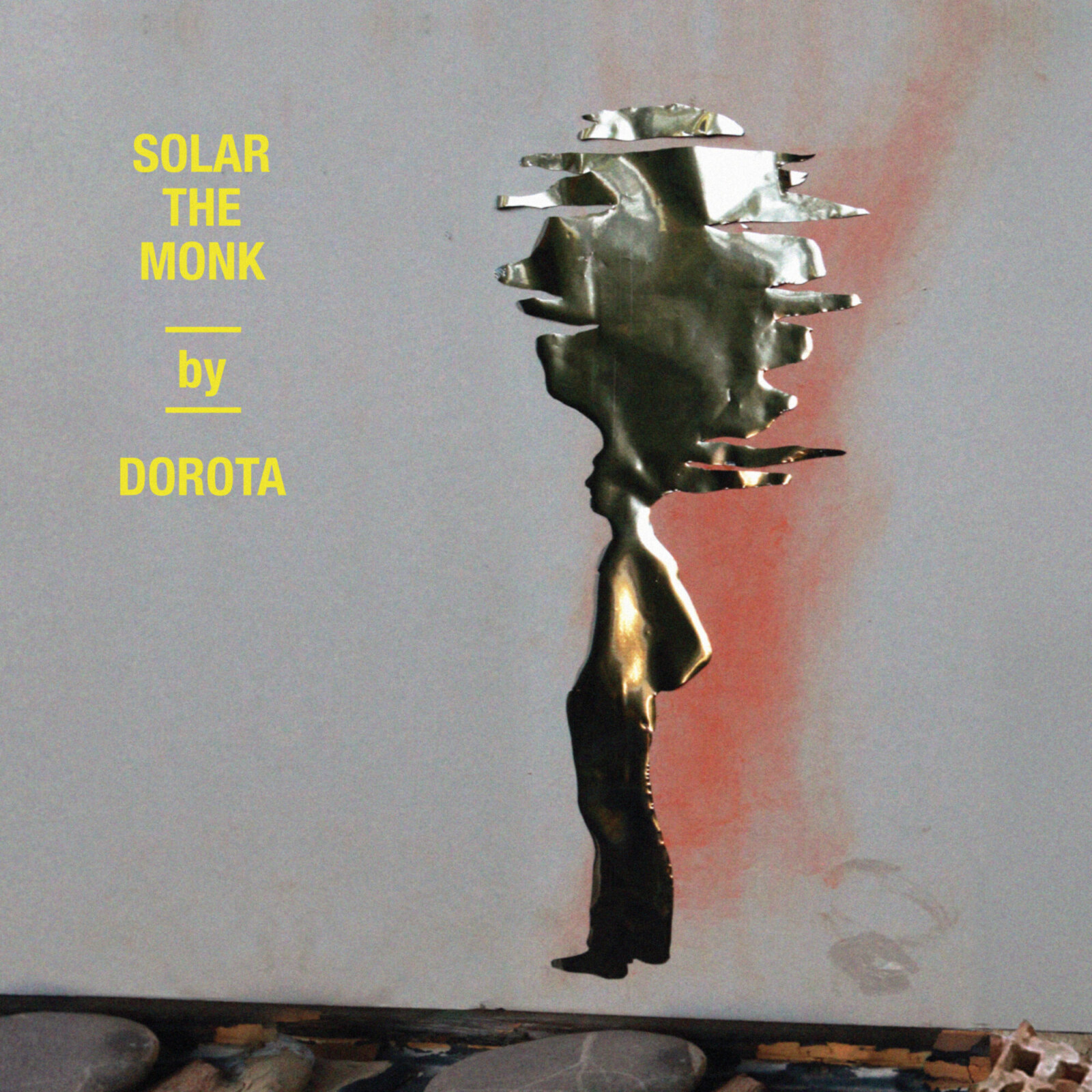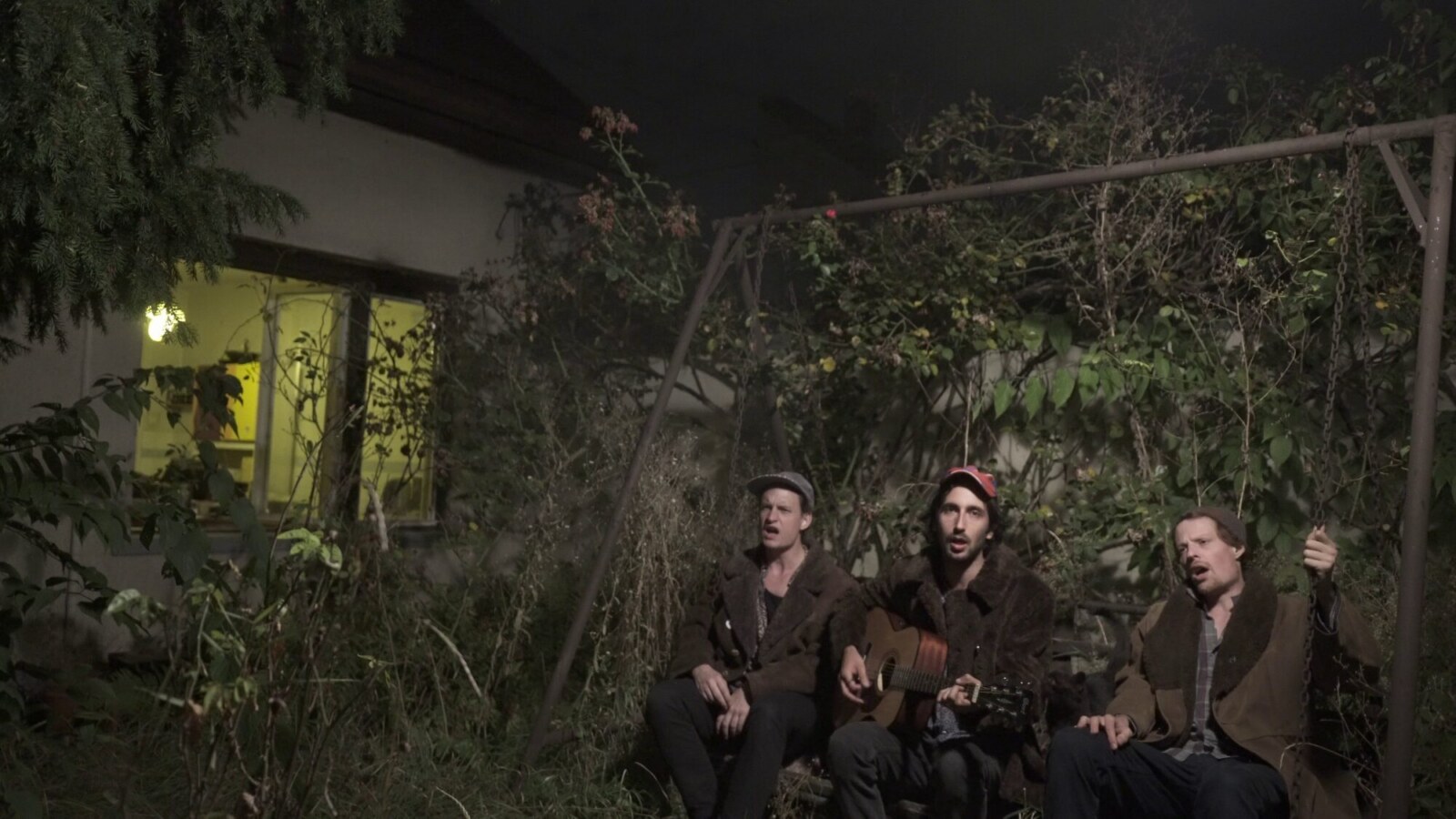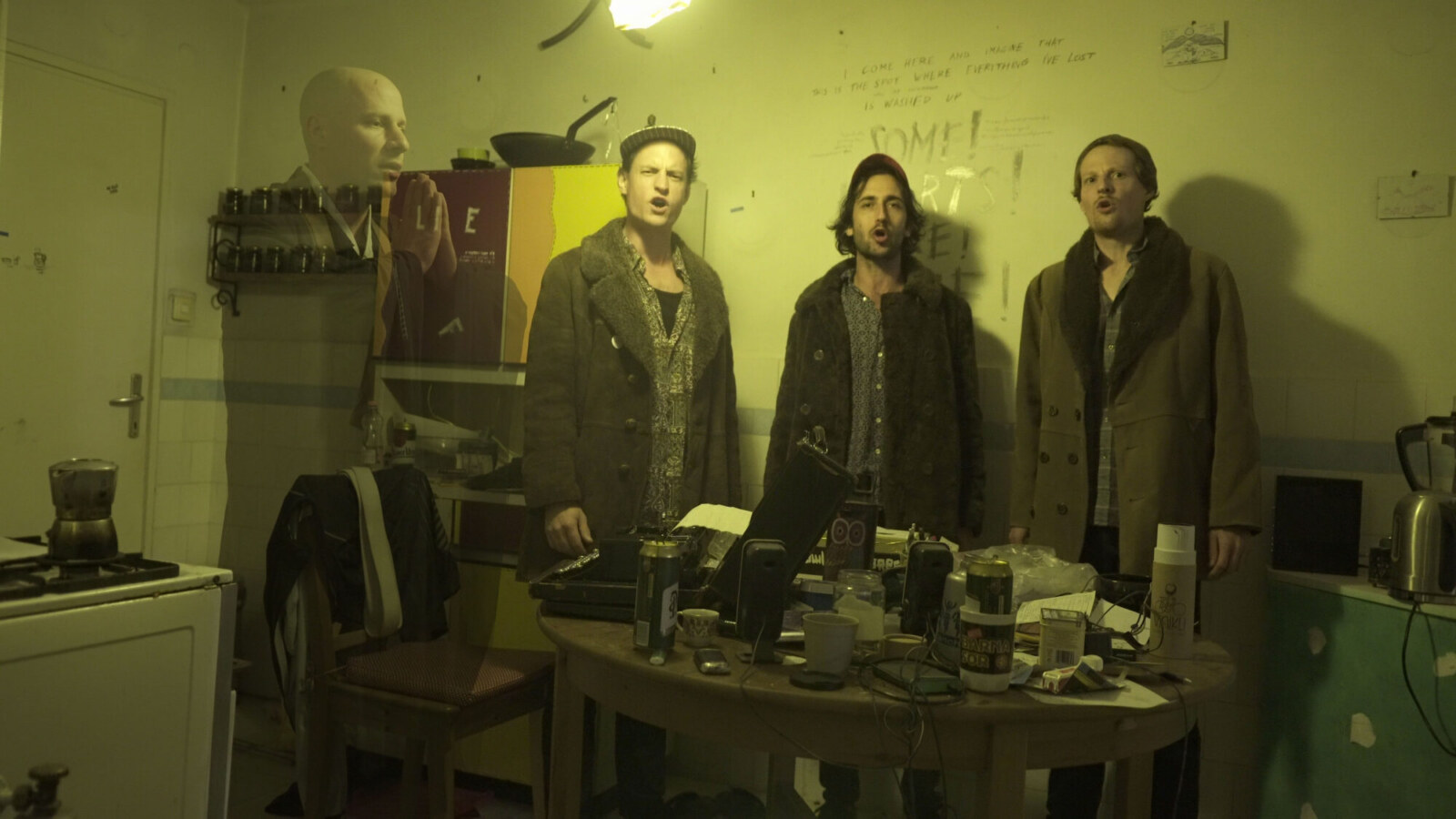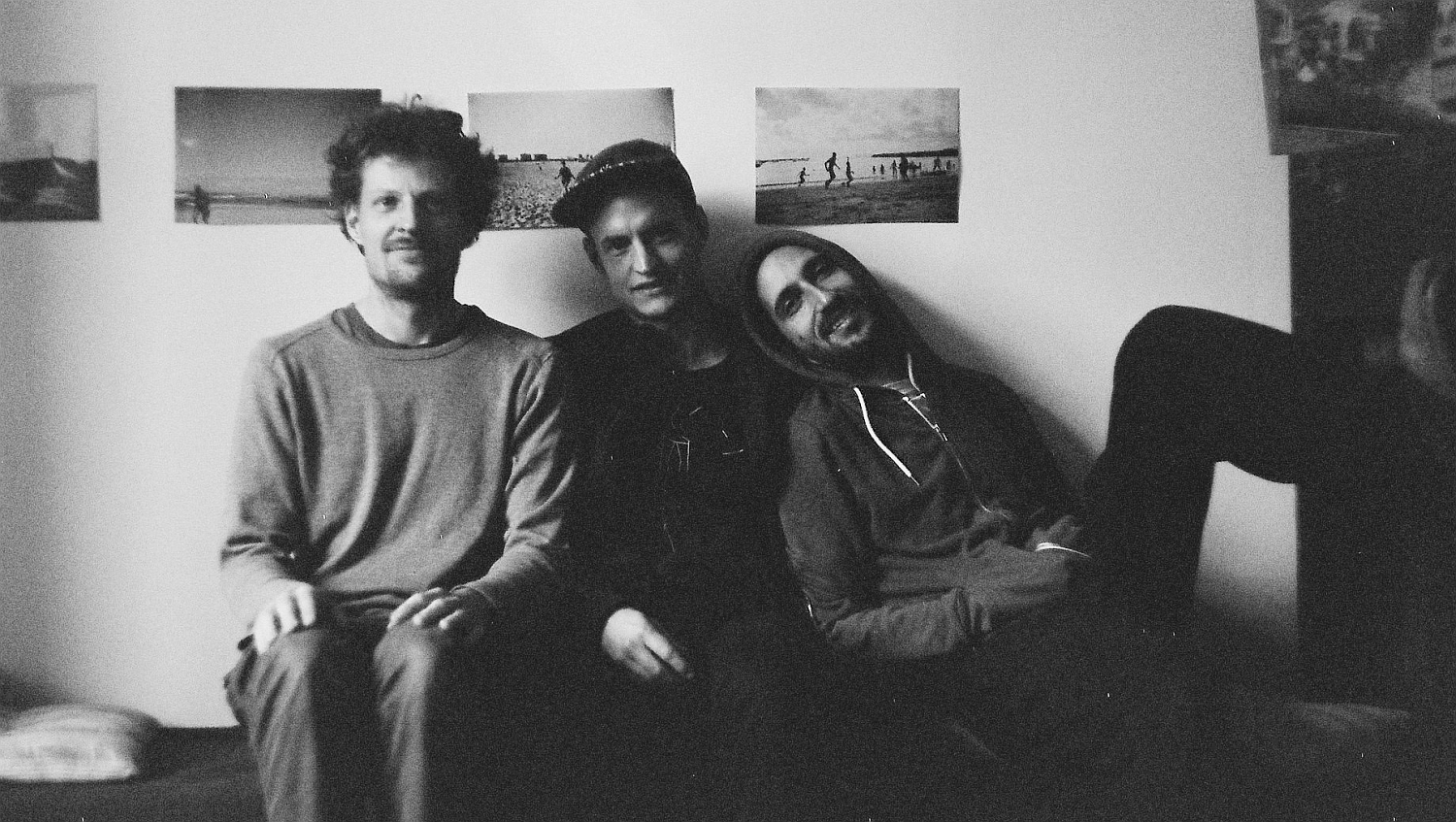Dorota | Interview | “Borderless experimentation”
Experimental trio formed in Budapest back in 2009. Their music is borderless, beyond any specific genre.
blindblindblind released ‘Solar the Monk’ in 2019. It’s a stunning release. The band currently works on a new album.
“We really use the material freely”
Would you like to talk a bit about your background?
Áron Porteleki: I started my musical life as a folk musician playing a special 3-stringed version of viola. At the same time I was interested in drums, I learned from a jazz drummer master as a kid, and later joined some courses and schools about jazz, never really finished any professional training or academy. Besides, I studied cultural anthropology at the university.
Dávid Somló: When I started playing music as a teenager I was playing in a nu-metal band. In my early twenties I got totally bored of the staticness of playing this kind of music, so I went to explore everything from jazz to free improv to African music – while studying sociology. Later on I studied composition and sound art in London. Now my main occupation is creating sound performances with many speakers.
Dániel Makkai: At 18, I was a beginner guitar player when my father invited his musician friends to our house. They played improvisational music and gave me a bass guitar to play whatever I wanted. They stayed with us for a month, it was an intensive training. Then I met Áron and we continued improvising. Dávid joined us later and we started Dorota. By the way, I’m an educator and anthropologist, now I work in children-protection.
You’ve been active as Dorota for quite some time. I’m having a bit of trouble with your discography. Can you list all of the releases?
Á.P.: Yes, Dorota was formed in 2009, our first album came out in 2011 (‘untitled’), then between 2012 and 2015 we were busy with our next creation called ‘FRIK’. As a part of that we created three musical albums: ‘Kisoroszi – Saints and Spaces’, ‘Miss Favour’, ‘Nagyoroszi – Bad Nature and Occultism’. You can enjoy them as individual albums but actually they are part of a bigger picture with two experimental films, a large non-linear text, a lot of home videos and other visual artworks, all this put into this trippy website: dorotafrik.com. Since we didn’t know when and where ‘FRIK’ is actually happening with us during our creative sessions, we recorded, wrote and draw everything all the time, so we ended up with a huge amount of material.
Tamás of blindblindblind label recently sent me the ‘Solar the Monk’ tape. What an incredible experimental release! Can you share some further details how your album was recorded?
Á.P.: After ‘FRIK’ we were burned out for a while and I think all of us were longing for something more grounded in creating, or even in genre. As always there were films and books, pictures and stories that inspired us, but most importantly the title ‘Solar the Monk’ came first from Dávid. It already launched a set of sounds, genres, interests in subcultures and spiritual stuff. We also went in the direction of simplicity, I think, guitar-bass-drums this time, punk in attitude let’s say, and started jamming in small basement rehearsal rooms. The actual recording took place in a friend’s almost empty big house just a bit outside of Budapest, a very good friend Dániel Sándor (who recorded Merzbow, Mats Gustafsson, Keiji Haino etc.) visited us from London to lead and record the sessions, and prior to that we had a few days there just finishing up the ideas.
D.S.: All we knew before we started working on it, that after 4 years of improvised music, we wanted more of a song format with a punk sound and singing. Important part of the process was the editing and mixing, which is an equally important part for us when we record an album. We really use the material freely, with loads of cuts, overdubs and sound art inspired compositions.
The title – which we had before playing any new music – came from a misunderstanding. While I was touring with another band someone was reading me an article from a petrol company newspaper which was written by a PR person of the company called Szollár Domonkos – which I understood as Solar The Monk… I thought that would be a really good album title. Of course it coincided with Áron’s stellar interest, and my Buddhist practice among monks. Another chance related thing with the album is that the tape loops you can hear on the album were all from randomly found tapes, first cut at random points. Like the one from the track ‘Might Be Him’: it was the perfect loop from the first try.

D.M.: After the ‘FRIK’ adventure, I insisted that we make a record that we could play live. We set the direction: tricky, but simple songs composed from simple elements. We can’t play the end result live as three of us, but the elements are so simple that I have to bring in only a couple of notes or harmonies on the bass most of the time. It’s very liberating, plus the addition of guest musicians brought a new dynamic after the album release.
“A synthesis of the various things that we did before”
The diversity of influences is stunning. How would you describe your sound and what are some of the main influences?
Á.P.: Our interests in music are really wide, I think, and the backgrounds and stories too. For the rawness of the archive recordings and the quality of handling the instruments folk music is always there. African, Hungarian, Indonesian let’s say, but this time Sufi music, and recordings from Burma, Tibet were also important. On the other side there were punk and alternative albums; Hüsker Dü, Idles, Fugazi, Cromagnon or even older Neurosis and stoner stuff from my side, and in the middle of that week one night after a good-night puff I had a huge trip with Talk Talk’s ‘Laughing Stock’… It’s also important that in different periods we – as a band, but also separately- were deep into free improvised music and conceptual experimental sound works as well and I think sound-wise a lot of experience is coming from that.
D.S.: For me the sound we achieved on ‘Solar The Monk’ was really a synthesis of the various things that we did before. It merges our experimental approach to sounds and composition, our interpretation of folk music, odd meters and rhythms and high intensity, ecstatic playing. What was new to us as a band, that for the audience our concerts turned from listening to full on raving.
D.M.: An internal filter has been developed to find Dorota like sounds. We’ve gathered a lot of references for this, so I don’t know what our music is like anymore, even though behind each track there must be some specific music that we’ve listened to together. I’m personally fascinated by traditional music and the diversity in the way it is created. My most intense experience was while playing gamelan music.
Are you usually jamming together or what is the process of making new music for you?
Á.P.: It’s rather something triggering us and then we move into the process, but it’s more “project-like”. Jamming in the rehearsal room is something that we struggle with.
D.S.: It really changes from album to album. For the first album we prepared the songs for one and a half years. For the triple album we mainly improvised with a dozen melodies/rhythms, but there was almost no song format. We mainly wrote Solar The Monk in the studio, lyrics and everything, we only had a couple of riffs before.
I would really like to see this album on vinyl. I think it would sound amazing!
Á.P.: It’s my dream as well, I have this in my mind for a while with our first album as well. Maybe a double release or something.

Let’s end this interview with some of your favorite albums. Have you found something new lately you would like to recommend to our readers?
Á.P.: Maybe it’s just the nostalgic effect of the pandemic, that I got lost in my old cassettes and CD’s, but the above mentioned Talk Talk – ‘Laughing Stock’ vinyl is hardly changing on my player for almost one and a half year now. I also had a beautiful encounter and reunion with my all time favorite album ‘Times of Grace’ by Neurosis. For post break up trauma and shitty days PJ Harvey’s ‘Stories from the City’ was kept me going, and Morton Feldman’s String Quartet (1979) for half asleep afternoons… Also a surprisingly random dig in a record store in Budapest: a French compilation on Greek folk music, ‘La Musique Paysanne de Grece (anthologie de la musique des peuples)’.
D.S.: Lately I’ve listened to ‘Enowaa’ from Canadoes Super Stars of Ghana a lot, which is a really hot African high-life music. To contemplate I was either listening to the ‘Covers’ by Justice Der (jazz guitar covers of hip-hop tracks by a Canadian teenager) or ‘Jetsun Mila’ by Eliane Radigue (beautifully minimal modular synth drone music). To pump myself up anything from Fugazi or early Deftones. Also I have listened to quite a few love related music because of love related issues, for this direction I can strongly recommend Michelle Gurevich or Morphine.
D.M.: Let’s do some YouTube search! White Elephants & Golden Ducks: ‘Enchanting Musical Treasures from Burma’, Daniel Norgren: ‘Buck’, Ohmme: ‘Parts’, Les Têtes Brulées, The Instrumental Kazakh Dombra Music: ‘Dauletkerei’, from the Circassian Nart Epos: ‘The Anthem of Nart Sosriqwe’.
Are any of you involved in any other bands or do you have any active side-projects going on at this point?
Á.P.: Not so much is active really, but I had a couple of bands till last year. With Ákos Szelevényi who is playing sax on ‘Solar the Monk’, I have Akosh S. Trio, and in another bigger formation called Qiyan we are playing free improvised music sewed into medieval sefard music. I joined this year fellow guitarist’s band Decolonize Your Mind Society, and we also have an occasionally active band together called 12z.
D.S.: Now I am mainly working on my new sound performance which will be kind of a theater of sounds in a large empty theater space. In the meantime I am working on my first African inspired album, which will be very dancy, and on a tape loop album which will be rather contemplative.
D.M.: I have no other musical projects lately, but I have a project called “Together With Bees”. They make nice sounds!

Thank you. Last word is yours.
Á.P.: We are in the beginning of our new album, waiting for this year to be fruity. Plans for a 10 days tour in the northern Caucasus and collaboration with the local ethno-punk label Ored Recordings are already on, also planning a few creative sessions during the spring and summer.
Klemen Breznikar
Dorota Official Website / Facebook / SoundCloud / YouTube / Bandcamp /
blindblindblind Facebook / Instagram / Bandcamp




